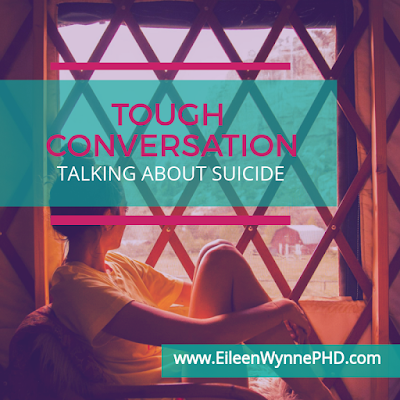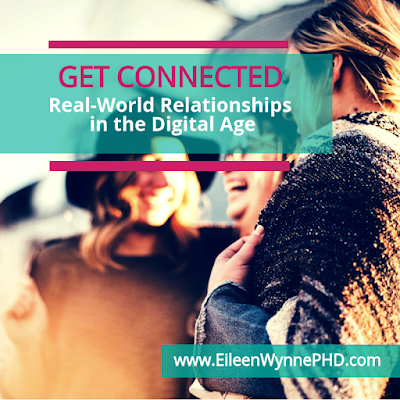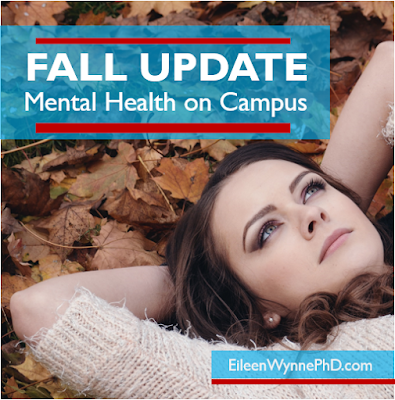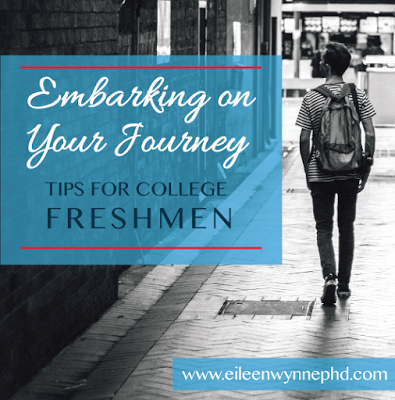
Life Transitions Blog

College Roommate Relationships 101: 6 Rules to Rock Your Freshman Year Together!
Congratulations. You’re arriving at college in just a few days, and your world is about to explode with new experiences, ideas, friends and a few challenges as you settle into your new environment. Your freshman year is sure to be full of surprises and adjustments especially if you are sharing living space on or off-campus with others.

How Will College Be Different After COVID-19?
As colleges and universities design and implement new safety procedures, COVID-19 may escalate one of the most frequent challenges college students face—isolation. Many college students struggle with figuring out where they “fit in” under normal circumstances. With social distancing and a limit on social gatherings, there is the potential for students to feel even more isolated during this time.

What Can I Expect During My First Year of College?
Everyone experiences freshman year in a different way. There is a lot to be excited about when going away to college—making new friends, being more independent, becoming involved in a community, and discovering new passions. However, many students also often wonder why no one told them how difficult the first semester of college might be. Managing unrealistic expectations is one challenge many students encounter during the first year of college, but there are many more.

How Can I Successfully Transition from High School to College?
Preparing for college is an exciting time. Students typically look forward to beginning a new chapter of their lives. With all of this energy spent looking forward, you naturally develop certain expectations. When the reality of an experience does not match an expectation, the gap between the expectation and reality can be difficult to handle.

Tough Conversations: Talking about suicide
Recent high profile suicides and the popularity of the show 13 Reasons Why have made it apparent that this is an issue that is increasingly commonplace and yet incredibly misunderstood. The CDC reports that in the United States, deaths by suicide have been increasing over the last decade. Suicide is now one of the top five causes of death for teenagers 15-19 years old.

Blue Summer: Summer-onset seasonal affective disorder (SAD)
Most people have heard of seasonal affective disorder, commonly referred to as SAD. If you have never lived in a place where there is a distinct winter season, you may think of the disorder as something difficult to understand, but the truth is that about 4-6% of people suffer from wintertime depression.

The Confidence Factor: Tips to boost self-efficacy and success
You know a confident person when you see one. They are cool and self-assured. Confidence is the belief that you can do what you set out to do. It is a trust in the self and certainty in one's abilities. It may seem like a skill that is arbitrarily handed out to some and not to others, but in truth, anyone can become more confident.

Labor of Love: Signs You are in a Great Relationship
In our culture, a lot of attention is focused on the negative aspects of romance, love, and marriage. But today, in honor of Valentine’s Day, I’d like to celebrate great relationships and look at what keeps them going and growing. This post is about all the things that make being a part of a committed romantic relationship so rewarding.

#METOO on Campus: The Danger of Sexual Assault
The #MeToo movement has captured national attention by making front page what has long been a dark secret. This movement has been a catalyst for many eye-opening and heartbreaking conversations. It has been sobering to read and hear the confessions of long-kept secrets from so many women in the public eye and our personal lives.

Dangerous Relationships: Why Ambivalent Friends are the Most Unhealthy
We all know toxic people and we all know that they are dangerous to our emotional well being. They are the naysayers or dream killers in our lives who always seem to make us feel like we are not good enough or smart enough. The bottom line is that toxic people bring us down and make us feel bad about ourselves and our lives and choices more often than not.

Get Connected: Real-World Relationships in the Digital Age
For all of the convenience of the modern world, from GPS systems to smartphones, interpersonal relationships seem to be getting more difficult to negotiate in the digital age. It may seem counter intuitive that in a time where we are more connected to those in our social networks more often than at any other point in history, so many people feel lonely and detached from one another.

In a Funk: Why Depression Awareness Month Matters
October is Depression Awareness Month and as the month draws to a close, I think it is important to review the key indicators of depression. This is a great opportunity to help move toward greater understanding and improve education about depression, its symptoms, prevalence, and some of the courses of treatment available.

How Peer Support Can Increase Student Mental Health
A number of great interventions for improving student mental health have been gaining recognition lately. Among them, increased mental health services in schools and universities, links to off-campus therapists, anti-stigma campaigns, and numerous efforts at raising awareness of mental health issues.

Dial Direct: How to respond to passive-aggression in daily life
You’ve all heard the phrase passive-aggressive and chances are that you have also experienced the behavior in your daily lives. But do you really know what passive-aggressive means and why people exhibit this behavior? When you experience passive-aggression, do you know the best way to neutralize it?

FALL UPDATE: Mental Health on Campus
A recent report in the U.K. revealed that not only are universities unable to cope with the increasing numbers of students suffering from mental health conditions but also that students are killing themselves at an alarming (and increasing) rate. Another report from UniHealth stated that 82% of university students in the UK experience anxiety and stress and 1 in 5 have suicidal thoughts. In Canada, the situation is much the same.

Millennials and the Potential for Self-Actualization
The idea that reaching one's fullest potential is something worth striving for doesn't get enough attention in our hyper-distracted modern landscape. Many of us are preoccupied with shorter-term, more easily gratified pursuits, but the long game of personal grown is definitely one worth striving for.

Soft Skills: Emotional intelligence and success
In 1990, scientists John D. Mayer and Peter Salovey came up with the concept of emotional intelligence. The term described a form of social intelligence that included the ability to:
Monitor one's emotions and those of others,
discriminate between these emotions and feelings, and,
to use this understanding to guide one's behavior.

Embarking on Your Journey: tips for college freshmen
Starting college is one of the most exciting times in a young adult's life. It is a time of unprecedented freedom and excitement. It begins a new chapter of your life where you make your own choices and taking complete responsibility for yourself and your behavior. No one is there to remind you to eat and get enough sleep or wake up in time for class. You are in control.

Finding your brightest future!
Recently a friend asked me what it actually meant be a certified success coach. I figured that if one person was wondering, there were probably several others who also wanted to know. To that end, this month I am dedicating my post to explaining what a certified life and success coach does, and why working with one can be beneficial.

Making Their Way: Unique challenges of being a Millennial
When you see the numbers, you may wonder what is happening with Generation Y.
• Millennials make up about a quarter of the U.S. population
• 37% of millennials are unemployed
• Approximately 1/3 of millennials still live with parents
• In 2013, only 30 % of young people (ages 20-34) were married, (compared to 77% in 1960)
